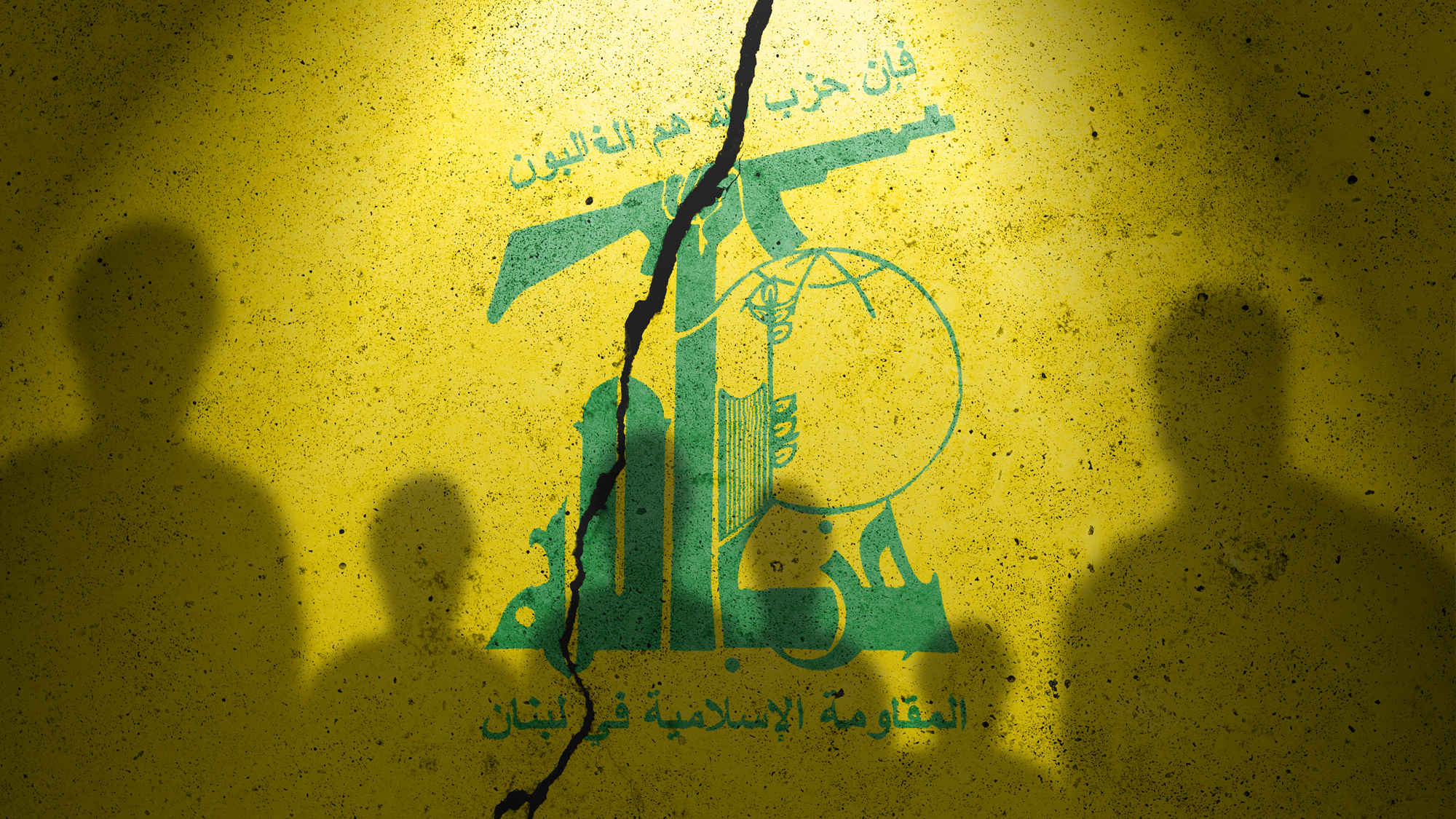The threat on Israel’s northern border
As the Israel-Hamas war rages in Gaza, could the Lebanon-based Hezbollah enter the fray?

A free daily email with the biggest news stories of the day – and the best features from TheWeek.com
You are now subscribed
Your newsletter sign-up was successful
As the Israel-Hamas war rages in Gaza, could the Lebanon-based Hezbollah enter the fray? Here's everything you need to know:
What is Hezbollah?
A Shiite Muslim political party and militant group based in Lebanon. Formed by revolutionary guerillas, the Iran-backed Hezbollah has been designated a terrorist organization by the U.S. and many other Western nations. But the virulently anti-Israel group functions more like a state-within-a-state in Lebanon than a traditional terrorist outfit. It has dozens of lawmakers in the Lebanese parliament, runs an extensive network of social services — including clinics, schools and youth programs — and has a lucrative smuggling and money-laundering operation. With a highly trained military wing, Hezbollah has been called the world’s most heavily armed non-state actor. It has some 20,000 active fighters and 30,000 reservists, as well as a massive arsenal of small arms, drones and an estimated 150,000 rockets and missiles — including several hundred long-range missiles that can reach across Israel. "They are arming to the teeth," said Naveed Ahmed, a Middle East–based analyst. "It’s a very skillful and advanced military organization."
What are its roots?
Hezbollah formed in 1982, after Israel occupied southern Lebanon and sought to quash the Palestinian militants based there. The region’s largely Shiite population was caught in the crossfire and took up arms against Israel. Seeing a chance to spread their Islamic Revolution, Iran’s Shiite rulers provided funding and training to several Lebanese Shiite groups, which united under the name Hezbollah, or "Party of God." The group pioneered suicide bombing as a weapon of war and won credit from many Lebanese when Israel withdrew in 2000. Six years later, Hezbollah sparked a new war with Israel with a brazen cross-border raid, in which it killed three Israeli soldiers and kidnapped two others. The monthlong fight, in which some 1,100 Lebanese and 159 Israelis were killed, ended in stalemate. Hezbollah’s next major engagement began in 2012, when it sent thousands of fighters to help Syrian President Bashar al-Assad — a member of the Shiite offshoot Alawite sect — crush a Sunni uprising. The group’s fighters battled alongside Russian forces, experienced brutal urban combat and emerged a formidable military force.
The Week
Escape your echo chamber. Get the facts behind the news, plus analysis from multiple perspectives.

Sign up for The Week's Free Newsletters
From our morning news briefing to a weekly Good News Newsletter, get the best of The Week delivered directly to your inbox.
From our morning news briefing to a weekly Good News Newsletter, get the best of The Week delivered directly to your inbox.
What does Hezbollah want?
To eradicate Israel, which Hezbollah leader Hassan Nasrallah has called "an aggressive, illegal and illegitimate entity." In its founding manifesto, Hezbollah vowed to create an Islamist state in Lebanon, which has a substantial Christian population. It has since softened that goal, unveiling a new political document in 2009 that said the group supports "true democracy." Hezbollah also serves the regional interests of Iran, which the U.S. says provides up to $700 million a year in funding. But while it’s linked ideologically and politically to Tehran, Hezbollah has a "great deal of its own autonomy" and "shouldn’t be understood as a traditional proxy," said Middle East specialist Thanassis Cambanis.
What is its relationship to Hamas?
Hezbollah is a long-term ally of the Palestinian terrorist group, which is also backed by Iran. But relations have not always been warm. The Shiite Hezbollah and Sunni Hamas backed opposing sides in Syria’s civil war; Hamas reconciled with its Lebanese counterpart in 2019 when it became clear Assad would remain in power. Some Hamas officials have said Hezbollah and Iran helped train and equip its fighters for the Oct. 7 massacre in Israel; Nasrallah denies the claim, saying the slaughter of 1,200 Israelis was a "100% Palestinian" operation. But Hezbollah has expressed full-throated solidarity with Hamas following the atrocity. "Our hearts are with you," a top official said at a Beirut rally on Oct. 8. "Our history and guns and our rockets are with you." Such rhetoric has raised fears Hezbollah may join the war — as has a rise in clashes along the Israel-Lebanon border.
What’s happening there?
Since Oct. 7, Hezbollah has repeatedly attacked Israeli positions along the frontier while Israel has struck at Hezbollah targets inside Lebanon and Syria. More than 70 Hezbollah fighters have been killed in clashes, according to the group, while Israel says at least eight of its soldiers have died. Villages and communities on both sides of the border have been evacuated. Amid growing fears that Hezbollah will launch an assault, raising the odds of a wider regional conflict, the U.S. has moved warships into the eastern Mediterranean and warned the group to stand down. In public statements, Nasrallah and other Hezbollah leaders have walked a careful line. In a recent speech, Nasrallah threatened escalation and said that "all scenarios are open." But he stopped short of declaring war and experts say there are strong reasons to believe he won’t.
Why might Hezbollah stay out of the war?
Lebanon has been in a dire economic crisis since 2019, with its currency losing 98% of its value and more than two-thirds of the population sinking into poverty. Economic woes have cut support for Hezbollah, which last year lost its majority in parliament. The public has little appetite for war and if it is dragged into one, “Hezbollah’s achievements over the past 30 years will go down the drain,” said Hilal Khashan of the American University of Beirut. Some experts think Iran does not want its prized asset weakened by a major conflict. But others say it will be hard for the linchpin of the Iran’s "Axis of Resistance" to stand by as Israel occupies Gaza. As tensions rise, there’s plenty of room for a miscalculation or retaliation spiral. The situation, said Hussein Ibish of the Washington-based Arab Gulf States Institute, "could easily get out of control."
A free daily email with the biggest news stories of the day – and the best features from TheWeek.com
Hezbollah’s U.S. targets
Before al Qaida attacked the U.S. on 9/11, Hezbollah held a grim record: It had killed more Americans than any other terrorist group. Its first strike came in April 1983, when a suicide bomber in a rigged pickup rammed the U.S. Embassy in Beirut, killing 63 people. Six months later, a suspected Hezbollah agent drove a truck laden with 12,000 pounds of TNT into a U.S. Marines barracks in Beirut. The blast killed 241 U.S. personnel who were in Lebanon as part of an international peacekeeping force. Hezbollah was thought to have orchestrated the 17-day hijacking of a TWA flight from Athens to Rome in 1985; the hijackers shot dead a U.S. Navy diver onboard after their demands for the release of hundreds of Lebanese Shiites in Israeli pris- ons were not initially met. Hezbollah has never struck inside the U.S., but according to a 2022 U.S. government–backed report, it seeks "to develop the operational capacity to do so." FBI director Christopher Wray recently warned of the increased threat of attacks inside the U.S. by Hezbollah and other Islamist groups. "We are in a dangerous period," he said.
This article was first published in the latest issue of The Week magazine. If you want to read more like it, you can try six risk-free issues of the magazine here.
-
 How the FCC’s ‘equal time’ rule works
How the FCC’s ‘equal time’ rule worksIn the Spotlight The law is at the heart of the Colbert-CBS conflict
-
 What is the endgame in the DHS shutdown?
What is the endgame in the DHS shutdown?Today’s Big Question Democrats want to rein in ICE’s immigration crackdown
-
 ‘Poor time management isn’t just an inconvenience’
‘Poor time management isn’t just an inconvenience’Instant Opinion Opinion, comment and editorials of the day
-
 ‘Bad Bunny’s music feels inclusive and exclusive at the same time’
‘Bad Bunny’s music feels inclusive and exclusive at the same time’Instant Opinion Opinion, comment and editorials of the day
-
 Is the Gaza peace plan destined to fail?
Is the Gaza peace plan destined to fail?Today’s Big Question Since the ceasefire agreement in October, the situation in Gaza is still ‘precarious’, with the path to peace facing ‘many obstacles’
-
 How ‘Manchesterism’ could change the UK
How ‘Manchesterism’ could change the UKThe Explainer The idea involves shifting a centralized government to more local powers
-
 ‘Dark woke’: what it means and how it might help Democrats
‘Dark woke’: what it means and how it might help DemocratsThe Explainer Some Democrats are embracing crasser rhetoric, respectability be damned
-
 How Iran protest death tolls have been politicised
How Iran protest death tolls have been politicisedIn the Spotlight Regime blames killing of ‘several thousand’ people on foreign actors and uses videos of bodies as ‘psychological warfare’ to scare protesters
-
 The Board of Peace: Donald Trump’s ‘alternative to the UN’
The Board of Peace: Donald Trump’s ‘alternative to the UN’The Explainer Body set up to oversee reconstruction of Gaza could have broader mandate to mediate other conflicts and create a ‘US-dominated alternative to the UN’
-
 San Francisco tackles affordability problems with free child care
San Francisco tackles affordability problems with free child careThe Explainer The free child care will be offered to thousands of families in the city
-
 Trump, Senate GOP block Venezuela war powers vote
Trump, Senate GOP block Venezuela war powers voteSpeed Read Two Republicans senators flipped their vote back amid GOP pressure